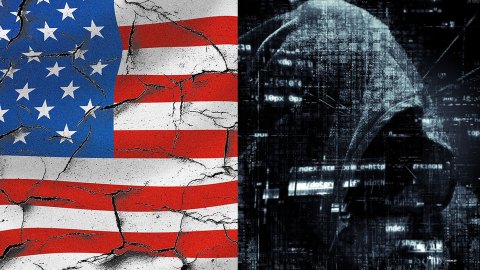The drastic measure America needs to take to protect itself from Internet attacks

Russia’s interference in the American election process has not only been very successful for them but is also going to continue. Such is the opinion of the experts and politicians with first-hand knowledge of the investigation into such efforts. What’s more – seeing how monumental the disruption has been, other countries like Iran and North Korea are likely to join in on attacking the American democracy digitally. If the Internet is such a vulnerability, perhaps it’s time for the United States to seriously consider creating a closed-off and a heavily-regulated Internet that works only within its borders.
The first thought upon encountering such a proposal could be – this goes against everything that the Internet stands for. What about uniting humanity, free-flowing international commerce, the promise of spreading democracy from the sheer availability of all information at once? These are all great goals but here is the reality at this point of the 21st century:
The former House Intelligence Committee Chairman Mike Rogers called Russia’s meddling not only apparent but “wildly successful” at a 2017 panel at Harvard University:
“Their purpose was to sew discontent and mistrust in our elections they wanted us to be at each others’ throat when it was over,” said Rogers. “It’s influencing, I would say, legislative process today. That’s wildly successful.”
By supporting a candidate who promised to throw wrenches all over American foreign and domestic policies, that’s exactly what Russia got as President Trump’s actions have shown. So far Trump has managed to upset most of our traditional alliances in Europe, even questioning whether we would come to the defense of other nations in the NATO pact. The President also seemed to side with Russia on the issue of election meddling during the Helsinki summit.
Internally, within the country, there’s also no shortage of discord. Americans are indeed staunchly divided and uncharacteristically upset with the other side. We have become Europe.
And if the strategy worked so well, why not use it again? Russia certainly will, and not just that – the Director of National Intelligence Dan Coats considers that what is coming is a digital 9/11.
“The warning signs are there. The system is blinking. It is why I believe we are at a critical point,” Coats said during a recent speech at the Hudson Institute in Washington, DC. “Today, the digital infrastructure that serves this country is literally under attack,” he said.
While Russia is the most “aggressive” foreign player trying to hack our democracy, Coats pointed out that China, Iran, and North Korea are also trying to wreak cyber havoc and weaken the U.S. by “penetrating our digital infrastructure and conducting a range of cyber intrusions and attacks against targets in the United States.” In particular, Coats believes the Russians and other players will look to target the 2018 U.S. midterm elections.
The Trump administration has so far had a schizophrenic approach to the Russian meddling – caught between having to deny it to maintain the narrative to its base while being forced to address it through the glaring obviousness of it all (continuously pointed out by its own departments which are simply doing their job). This begs the question – how can America protect the survival of its ideology and power while being trapped in this modern conundrum? Is there something the Trump administration could do that would both gel with its philosophy (if there is one) and keep the country safe?
If the Internet is our Achilles heel, then we need to use some of that protectionist thinking and separate America’s digital infrastructure out from the world that seeks to abuse it.
You know who else has a similar idea? Russia. The country has passed laws to increase the government’s ability to regulate the Internet and protect it from foreign players and is both ready and willing to launch its own “parallel internet”. That’s according to recent comments by the top Russian diplomat – the head of the Department on New Threats in Russia’s foreign ministry, Ilya Rogachev.
Rogachev’s comments stem from the thinking that the U.S. can somehow cut off Russia from the global Internet – something the U.S. has not publicly considered but can also be an option on the table.
Other countries like China, India, Brazil and South Africa could potentially use this new internet by Russia.
What’s more, a new internet is technically quite feasible. As reported by the engineering site IEEE, the effort is achievable for Russia and other players. As such, the United States, the country which already hosts the global internet and has the world’s top Internet companies, should be able to create a new version that has its own security as the prime objective.
Of course, a host of technical and legal issues will arise and the free flow of international commerce may be temporarily impeded. Buy the fact is – the perennial adversaries of the U.S., which are actively threatening it and using the soft points of the open American society to attack it, see the Internet as a place that’s dangerous to their sovereignty. How can America continue to remain blind to this threat, despite all that has already happened to it, which doesn’t include just the elections but the continual attacks on its financial and business sectors, with the possibility of its basic structural elements like the electrical grid also open to intrusion? The promise of the Internet is still there but so is the reality of its dangers. America needs to take concrete technical and political measures to protect itself.





